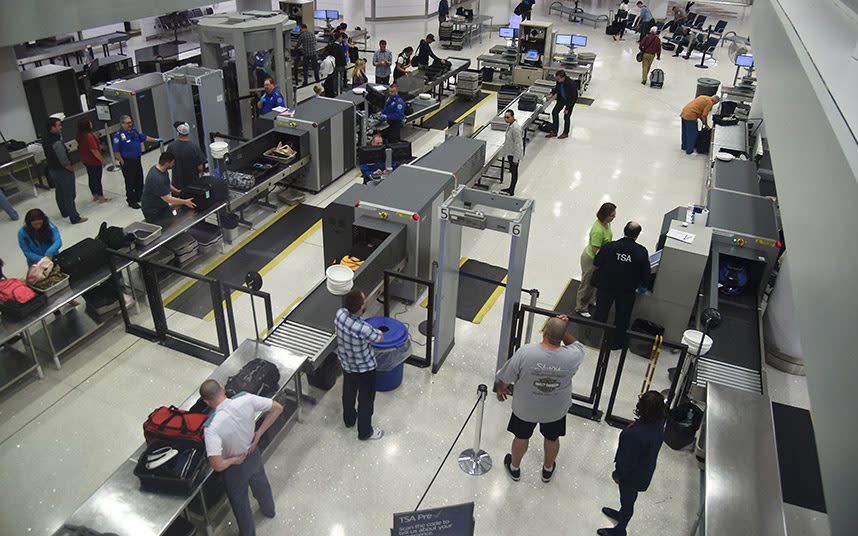Travellers may have to pay for two weeks in hotel quarantine


Hotel groups have begun talks with Government officials over using their facilities as quarantine centres, as it emerged on Wednesday that ministers have discussed tighter border controls that could extend to barring foreign travellers.
Whitehall sources confirmed that “early discussions” had been held over adopting an Australian-style border system, following reports over the weekend that people could be forced to pay to stay in a hotel for two weeks while observing a self-isolation period.
Ministers are increasingly concerned that as the vaccine programme progresses and so-called “herd immunity” increases, the virus will come under greater pressure to evolve and mutate.
This in turn would mean there is a greater risk of new strains developing which are likely to be more resistant to the existing vaccines, in turn undoing the Government’s efforts.
In order to minimise the risk of importing these potential strains from abroad, tighter controls would therefore be implemented which would restrict entry criteria, with those still permitted to enter asked to quarantine in a hotel or secure facility, according to The Spectator.
Watch: What is being suggested to help curb the spread of coronavirus?
Currently Australia’s borders are closed to all arrivals except residents and those with an exemption, who are still required to quarantine at a state-approved facility.
One Government insider suggested it would be a “highly popular policy”. They pointed to Wednesday’s death toll of 1,820 people - the highest since the pandemic began - adding that the public were increasingly supportive of tightening restrictions.
The Sunday Times also reported that Matt Hancock, the Health Secretary, had floated a moratorium on all international travel for a month.
However, a Downing Street source strongly pushed back against the suggestion that foreign travellers could be denied entry in the future, adding that there was “no prospect” of it happening.

Discussing the latest tightening of border controls, including the requirement to present a negative test before departure, Mr Johnson said on Wednesday the measures were designed “to stop people coming back into this country and bringing infection back into the country while we’re getting the vaccination rolled out.”
He added: “I think it would be absolutely crazy to be vaccinating our country as successfully as we are...doing that huge national effort while simultaneously allowing the virus or new variants of the virus to be reimported back into our country.”
The idea of using hotels to quarantine UK arrivals was previously floated last year, along with the use of Army barracks to provide overspill capacity, although The Telegraph understands the latter option has now been ruled out.
While a number of senior ministers believe it would be impossible for the UK to fully replicate Australia’s Covid-19 border system due to its global connectivity, they have signalled that the use of hotels to quarantine travellers is now firmly back on the agenda.
A Government source confirmed that officials had now begun “engaging” a number of hotel groups as part of forward planning, should the policy be adopted.
However, another Government source said that some ministers were still pushing the idea of going further and restricting entry to foreign nationals, which could be adopted at a later stage if required.
It came as a leaked tape revealed that the Home Secretary Priti Patel told Conservative supporters on Tuesday that she was at odds with the Government delaying the closure of the border when the outbreak was first spreading last spring.
In a recording published by the Guido Fawkes website, she told the Conservative Friends of India group: “On ‘should we have closed our borders earlier?’, the answer is yes. I was an advocate of closing them last March.”
Her remarks were seized upon by Sir Keir Starmer, the Labour leader, during Prime Minister’s Questions and he demanded to know why Boris Johnson had chosen to “overrule” the Home Secretary by refusing to close the border sooner.
Mr Johnson hit back: "I think it was last March that (Sir Keir), along with many others, was actually saying that we didn't need to close borders, but as usual Captain Hindsight has changed his tune to suit events."
The Prime Minister argued that the UK had now "instituted one of the toughest border regimes in the world". Following tough rules introduced on Monday, all inbound international travellers must provide a negative test on arrival and then isolate for 10 days.”
Last March, the UK abandoned asking people to quarantine for two weeks after arriving from areas with high infection rates, such as Hubei province in China and Italy. The Government departed from other nations, such as New Zealand, that took a hardline approach to quarantine for all arrivals at the border.
Britain introduced blanket quarantine restrictions last June for all international travellers, except those coming from Ireland, and a month later agreed "travel corridors" with countries deemed to have safe levels of infection.
Despite her comments on Tuesday night that she had opposed the Government’s course of action over the borders, Ms Patel publicly defended it on Wednesday and insisted ministers had followed scientific advice.
"When it comes to border measures, for example, there was a lot of work that took place last year, both in Transport and in the Home Office, but also working with the scientists who advised us at the time when coronavirus was incredibly high that it would not have made a difference to have taken border measures,” she told the BBC.
Sir Patrick Vallance, the Government’s Chief Scientific Adviser, appeared to justify the Government's moves. He said that with hindsight closing the border in January 2020 would have made a difference.
A Home Office spokesman said: "We have strong measures at the border in place which are vital as we roll out the vaccine."
Watch: What is known about the Brazilian coronavirus variant?

 Yahoo Movies
Yahoo Movies 